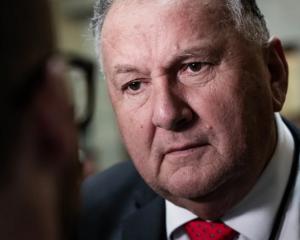One in four teachers say students have come to them about cyber-bullying but two-thirds of them say they don't have the training to deal with it.
An annual global survey of teachers and students internet use by AVG Technologies, released yesterday, also showed parents expected teachers to educate their kids about internet safety.
The survey showed there was a discrepancy between parents' expectations on online safety and the actual time spent in class covering the topic, despite more than nine out of 10 teachers saying they used internet content in class.
Of the teachers surveyed, 18 per cent said they had received formal training to teach online safety, and 32 per cent felt ill-equipped to deal with cyber bullying.
More than three quarters believed their pupils' parents relied too heavily on schools to prepare kids for the online world.
One in three teachers also felt parents themselves didn't know enough about cyber-bullying.
The majority of teachers agreed internet safety should be a dedicated part of the curriculum at 77 per cent.
After cyber bullying, the next biggest issue teachers had was students coming to them about viewing inappropriate content online.
The 23 per cent of Kiwis who flagged this issue was just slightly higher than the 21 per cent recorded globally.
Tahatai Coast School principal Ian Leckie said his was considered an 'IT school,' with high levels of children with their own devices - giving students access to all aspects of e-learning.
Mr Leckie said teachers had come to him after being approached by students with cyber-bullying issues.
While his teachers were digitally literate and comfortable in dealing with cyber-bullying, that was not the case with all teachers, Mr Leckie said.
He believed the best way to manage cyber-bullying in schools was getting parents involved.
All students and families at Tahatai Coast School had signed a policy on cyber citizenship, which educated students on acceptable internet practice, he said.
"Our kids have access to all communication that can occur electronically. It is school process to manage that and how that interacts with what happens at home is always a challenge. That is where the partnership comes in.
"Every school should have, and needs, a digital citizenship agreement, with parents and children. It builds around kids being good digital citizens."
Executive Director for Netsafe Martin Cocker said there was plenty of room for increased training and resources for teachers in terms of dealing with cyber incidents, and cyber-bullying.
"If you were to survey teachers a significant proportion won't feel confident dealing with student challenges like this.
"There is a greater need for teachers to feel confident dealing with these issues, and feeling they have access to the tools to deal with it and manage with the challenges students face online."
New Zealand Post Primary Teachers' Association president Angela Roberts said Netsafe provided good training and support for schools, but agreed teachers could always do with more professional learning and development in those areas.
A total of 1760 teachers took part in the online study in June, from preschool to high school teachers in Australia, Brazil, Canada, Czech Republic, France, Germany, New Zealand, the UK and US.
By the numbers
* Only 18 per cent of Kiwi teachers have been formally trained to teach internet safety, compared to 28 per cent globally.
* 47 per cent of New Zealand teachers agreed they needed better training, compared to 64 per cent globally
* 61 per cent of New Zealand schools have Information Technology classes, down on the global rate of 72 per cent.
* 70 per cent of Kiwi teachers believe that internet safety should be a dedicated part of the curriculum.
- Nikki Papatsoumas of APNZ and AAP












